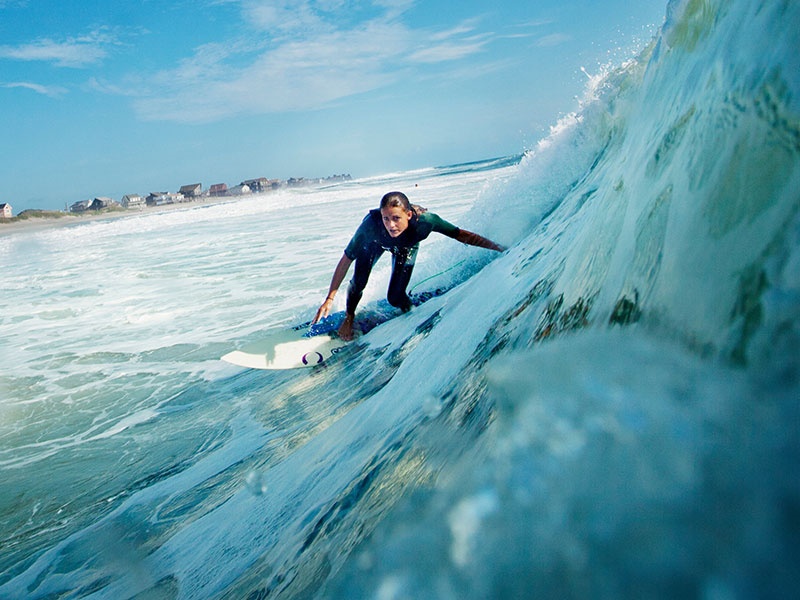How Surfing Can Transform Your Mind And Body
The Physical Benefits of Surfing
1. Full-Body Workout: Surfing engages multiple muscle groups, providing a comprehensive workout. Paddling strengthens your arms and shoulders, while balancing on the board works your core and legs. The combination of these movements enhances overall strength, flexibility, and endurance.
2. Cardiovascular Health: Surfing is an excellent cardiovascular exercise. Paddling against the waves increases your heart rate, improving cardiovascular fitness and promoting better circulation. Regular surfing can lead to improved stamina and a healthier heart.
3. Improved Coordination: Balancing on a moving board requires a high level of coordination and agility. Over time, surfing helps develop these skills, which can translate to better performance in other sports and daily activities.

The Mental Benefits of Surfing
1. Stress Relief: The rhythmic sound of the ocean and the physical exertion of surfing can significantly reduce stress levels. Being in nature and engaging in a physical activity can elevate your mood and promote mental well-being.
2. Mindfulness and Focus: Surfing requires concentration and awareness of your surroundings. This focus helps cultivate mindfulness, allowing you to be present in the moment and escape daily distractions. Many surfers find a sense of peace and clarity while riding the waves.
3. Building Resilience: Surfing teaches valuable life lessons, including patience and perseverance. The process of learning to surf involves falling and getting back up, which fosters resilience and determination—qualities that are beneficial in all aspects of life.

Getting Started with Surfing
1. Take a Lesson: If you’re new to surfing, consider taking a lesson from a certified instructor. They can provide essential tips on paddling, popping up, and riding waves safely, ensuring you build a solid foundation.
2. Choose the Right Equipment: Selecting the right surfboard is crucial for beginners. A longer, wider board is typically more stable and easier to balance on. Don’t forget to invest in a good wetsuit for warmth and protection.
3. Practice Safety: Always prioritize safety when surfing. Be aware of your surroundings, respect local surf etiquette, and never surf alone, especially as a beginner.

Tips for Enjoying Surfing
1. Stay Patient: Learning to surf takes time and practice. Celebrate small victories and enjoy the process rather than focusing solely on catching the perfect wave.
2. Connect with the Community: Surfing has a vibrant community. Engaging with fellow surfers can enhance your experience, providing support, tips, and camaraderie.
3. Respect the Ocean: Always be mindful of ocean conditions and tides. Understanding wave patterns and currents is essential for both safety and enjoyment.
Conclusion
Surfing is a transformative experience that nourishes both the body and mind. By embracing the physical challenges and mental rewards of this exhilarating sport, you can cultivate a healthier lifestyle and a deeper connection to nature. Whether you’re riding your first wave or honing your skills, surfing offers an enriching journey that can lead to lifelong benefits. Grab your board, hit the waves, and discover the magic of surfing!
